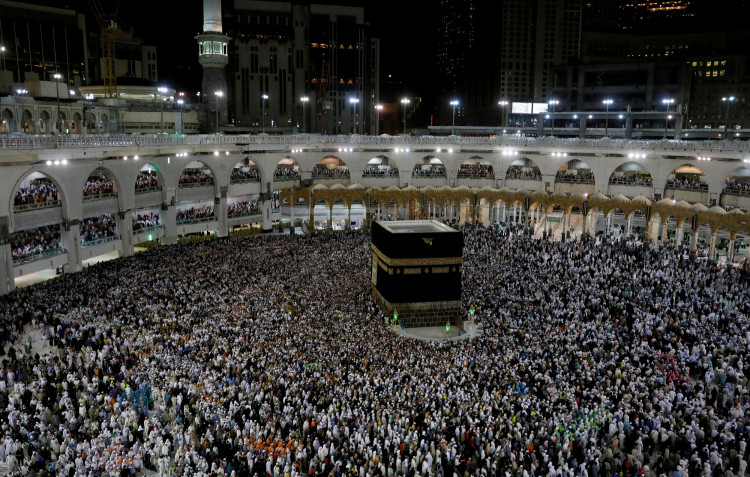Saudi Arabia is reportedly considering the possibility of canceling the annual Hajj Islamic pilgrimage this year to mitigate the further spread of the coronavirus pandemic. The annual pilgrimage to Mecca in Saudi Arabia is one of the largest religious gatherings in the world, attracting more than 2 million pilgrims to the Middle Eastern country every year.
According to sources familiar with the matter, Saudi officials are facing increased pressure from various concerned groups and agencies for the country to consider canceling the event this year. Other major global events, such as the Tokyo 2020 Olympics, had already been canceled. Health experts warn of increased infection rates during such events, and a gathering such as that on Mecca, the holiest city for Muslims, could result in hundreds if not thousands of new coronavirus cases.
The Hajj typically lasts for around 5 to 6 days depending on the lunar Islamic calendar. The mandatory religious duty for all Muslims that are physically and financially capable involves close contact with other devotees, most of which are crammed up in small tents during their stay. Devotees also visit various religious sites during the journey, often resulting in massive crowds.
Reports have claimed that officials are still deliberating on a decision, with some proposing various strategies to mitigate direct physical contact and to enforce social distancing regulations. A senior official from the Saudi Ministry of Hajj and Umrah ministry had told reporters that a decision should be announced within a week. The ministry did not state a specific date for an announcement.
The cancellation of this year's Hajj pilgrimage is expected to place further economic pressure on the country, which had already been dealt a big blow with the massive drop in global oil prices and demand due to the pandemic. A cancellation would result in further losses to various businesses within the city that heavily rely on money spent by annual pilgrims. This year's pilgrimage is expected to generate around $12 billion for the country's economy.
This year's pilgrimage is scheduled to take place between July 29 and August 4. For now, Saudi Arabia has not yet lifted its international travel ban, which it had imposed back on May 20. Some countries, such as Brunei and Malaysia, have already announced that they will no longer be allowing pilgrims to travel this year, while others have yet to make a formal decision.
After Saudi Arabia had relaxed its travel restrictions and lockdown measures, the kingdom had reported a spike in new coronavirus cases and deaths. As of today, the country has more than 127,500 coronavirus cases with 972 fatalities.






